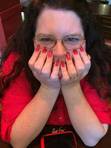Reading as a Writer: The Great Adventure! (Part One)
by Jan Drexler
My favorite advice for new writers, wanna-be writers, and experienced writers is: Read, read, read, read, read. And then read some more.
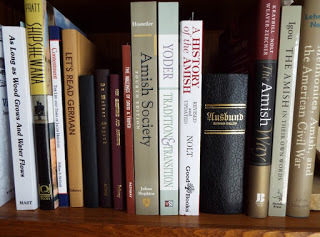 Just a few of my research books...
Just a few of my research books...
Great advice, right? Except for those unanswered (until now) questions: Why should I read? and What should I read?
Let’s start with why a writer should read.
Reason #1: Writers use words. Not just any words, but the right words. We don’t only try to communicate information with our writing, we try to communicate and evoke emotions.
So instead of telling our readers that a character was sad, we want our readers to cry. Instead of telling our readers that a character is afraid, we want them to be looking over their shoulders as they read.
How do we learn how to use the right words? We read. We learn how other writers have used the words we need to convey the images, emotions, and feelings we want to give our readers.
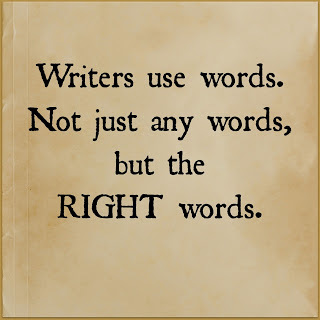
Reason #2: Writers need to draw from a deep well to write deep stories.
Admit it. It’s easy to write a story. A-B-C, the plot is done. The characters have their HEA ending. Ho Hum.
But it’s hard to write a story that means something. A story that can be the catalyst for change in another person’s thinking. A story that preaches the gospel (without being “preachy”).
So we writers need to read stories to expand the depth of our knowledge. We need to read stories with tough ideas to chew on and tough situations to live through. Stories with meat and grit. Stories that grip us from the beginning and don’t let us go.
Reason #3: At the same time, writers need to have a wide range of knowledge.
Things I’ve learned through reading could fill a set of encyclopedias.
Think about some of the things you’ve learned through reading. Maybe you know how to keep your toes warm while milking the cow on a frosty morning because you read Laura Ingalls Wilder. Maybe you know what it’s like to be lost in a cave because you read Mark Twain. Maybe you know the squalor of a mountain cabin in Appalachia because you read Catherine Marshall.
Writers don’t have to experience everything they write about because we have books. They open our minds to an entire universe of other people’s experiences.
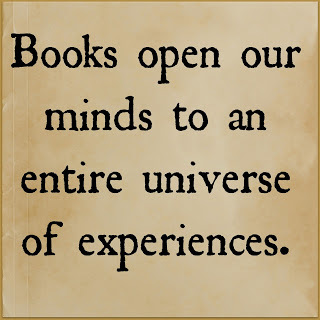
Now let’s tackle the second question: What should I read?
This one can be answered with one simple word: Everything!
Okay. I know we can’t read everything (and there are some things we shouldn’t allow access into our minds and lives,) but I think you get the point.
A writer should read inside her genre and outside. He should read classics, popular fiction, fiction from past centuries and our current century. A writer should read widely and deeply.
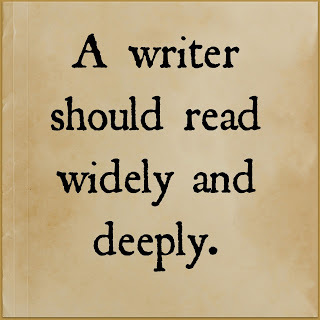
Here are some suggestions to get you started:
#1: The Bible. I can’t say enough about how a Christian needs to be Bible literate. Even if you aren’t a Christian, you should be familiar with the stories and themes that are found in the Bible. I read through the Bible every year, following a Bible reading plan. It is my first priority every morning. My goal is to know God through the Bible, and to know how the Christian world view forms the human experience.
Why are those two things important? Because they are the core of every person's life - believer or not - and so they are the core of the life of every reader who picks up one of your books.
#2: Your favorite books. There is a reason why a particular book is your favorite, so read it again to discover why you love it so much. Examine the characters, dialogue, and descriptions. Once you’ve identified what it is that makes you love the book, you can work to make that technique your own and incorporate it in your writing in your own way.
#3: Award finalists and winners. These are lists I choose from when I'm looking for my next book to read. I have two reasons for reading these books. One is to keep up with what is popular in popular fiction. Reading tastes vary from year to year. What’s in one year is out the next…and then you see it reappear a few years later. What are publishers going to be looking for next year? No one knows. But it’s probably going to be a new slant on this year’s award winners and best sellers.
The second reason is to read excellent writing. Writers tend to echo what they’re reading, so I figure I ought to be reading the best books if I want to write a good one. Writing also changes over the years (just read a book written a hundred years ago to see what I mean.) By reading the best of this year’s fiction, I’m also keeping up with the writing styles and word usages of today’s publishing world.
Where do I find these lists? Right here!
Here is the list of 2018 Rita Winners in the “Romance with Religious or Spiritual Elements” category:
Then There Was You by Kara Isaac
Grounded Hearts by Jeanne M. Dickson
A New Shade of Summer by Nicole Deese
A Note Yet Unsung by Tamera Alexander
One Simple Wish by Katy Lee
And here are links to the finalists and winners in a few well-known inspirational fiction contests:
The Christy Awards
The Carol Awards
The Selah Awards
The FHL Reader’s Choice Awards
In this post, I covered two of the three questions to get you started on your adventure of reading as a writer. Next month, we’ll delve into the third question: How do I read? Stay tuned!
Wait a minute! I know what you're all thinking!
"Oh yeah, this is all very well for Jan. She has the perfect life with all kinds of time to read. Answer me this, Drexler! When in the world am I going to do all this reading???"
(Okay, maybe only Ruthy is thinking this...)
LOL! If you could see me squeezing my reading in, taking a minute here and an hour there, then you'd know our lives aren't all that different! Because we'll never read if we wait until we can find the time (just like we'll never write if we wait until we can find the time!)
Just like writing, we need to make the time to read and grab it with both hands.
So, let's talk about that! When do you take time to read? How do you fit it into your busy life?
My favorite advice for new writers, wanna-be writers, and experienced writers is: Read, read, read, read, read. And then read some more.
 Just a few of my research books...
Just a few of my research books...Great advice, right? Except for those unanswered (until now) questions: Why should I read? and What should I read?
Let’s start with why a writer should read.
Reason #1: Writers use words. Not just any words, but the right words. We don’t only try to communicate information with our writing, we try to communicate and evoke emotions.
So instead of telling our readers that a character was sad, we want our readers to cry. Instead of telling our readers that a character is afraid, we want them to be looking over their shoulders as they read.
How do we learn how to use the right words? We read. We learn how other writers have used the words we need to convey the images, emotions, and feelings we want to give our readers.

Reason #2: Writers need to draw from a deep well to write deep stories.
Admit it. It’s easy to write a story. A-B-C, the plot is done. The characters have their HEA ending. Ho Hum.
But it’s hard to write a story that means something. A story that can be the catalyst for change in another person’s thinking. A story that preaches the gospel (without being “preachy”).
So we writers need to read stories to expand the depth of our knowledge. We need to read stories with tough ideas to chew on and tough situations to live through. Stories with meat and grit. Stories that grip us from the beginning and don’t let us go.
Reason #3: At the same time, writers need to have a wide range of knowledge.
Things I’ve learned through reading could fill a set of encyclopedias.
Think about some of the things you’ve learned through reading. Maybe you know how to keep your toes warm while milking the cow on a frosty morning because you read Laura Ingalls Wilder. Maybe you know what it’s like to be lost in a cave because you read Mark Twain. Maybe you know the squalor of a mountain cabin in Appalachia because you read Catherine Marshall.
Writers don’t have to experience everything they write about because we have books. They open our minds to an entire universe of other people’s experiences.

Now let’s tackle the second question: What should I read?
This one can be answered with one simple word: Everything!
Okay. I know we can’t read everything (and there are some things we shouldn’t allow access into our minds and lives,) but I think you get the point.
A writer should read inside her genre and outside. He should read classics, popular fiction, fiction from past centuries and our current century. A writer should read widely and deeply.

Here are some suggestions to get you started:
#1: The Bible. I can’t say enough about how a Christian needs to be Bible literate. Even if you aren’t a Christian, you should be familiar with the stories and themes that are found in the Bible. I read through the Bible every year, following a Bible reading plan. It is my first priority every morning. My goal is to know God through the Bible, and to know how the Christian world view forms the human experience.
Why are those two things important? Because they are the core of every person's life - believer or not - and so they are the core of the life of every reader who picks up one of your books.
#2: Your favorite books. There is a reason why a particular book is your favorite, so read it again to discover why you love it so much. Examine the characters, dialogue, and descriptions. Once you’ve identified what it is that makes you love the book, you can work to make that technique your own and incorporate it in your writing in your own way.
#3: Award finalists and winners. These are lists I choose from when I'm looking for my next book to read. I have two reasons for reading these books. One is to keep up with what is popular in popular fiction. Reading tastes vary from year to year. What’s in one year is out the next…and then you see it reappear a few years later. What are publishers going to be looking for next year? No one knows. But it’s probably going to be a new slant on this year’s award winners and best sellers.
The second reason is to read excellent writing. Writers tend to echo what they’re reading, so I figure I ought to be reading the best books if I want to write a good one. Writing also changes over the years (just read a book written a hundred years ago to see what I mean.) By reading the best of this year’s fiction, I’m also keeping up with the writing styles and word usages of today’s publishing world.
Where do I find these lists? Right here!
Here is the list of 2018 Rita Winners in the “Romance with Religious or Spiritual Elements” category:
Then There Was You by Kara Isaac
Grounded Hearts by Jeanne M. Dickson
A New Shade of Summer by Nicole Deese
A Note Yet Unsung by Tamera Alexander
One Simple Wish by Katy Lee
And here are links to the finalists and winners in a few well-known inspirational fiction contests:
The Christy Awards
The Carol Awards
The Selah Awards
The FHL Reader’s Choice Awards
In this post, I covered two of the three questions to get you started on your adventure of reading as a writer. Next month, we’ll delve into the third question: How do I read? Stay tuned!
Wait a minute! I know what you're all thinking!
"Oh yeah, this is all very well for Jan. She has the perfect life with all kinds of time to read. Answer me this, Drexler! When in the world am I going to do all this reading???"
(Okay, maybe only Ruthy is thinking this...)
LOL! If you could see me squeezing my reading in, taking a minute here and an hour there, then you'd know our lives aren't all that different! Because we'll never read if we wait until we can find the time (just like we'll never write if we wait until we can find the time!)
Just like writing, we need to make the time to read and grab it with both hands.
So, let's talk about that! When do you take time to read? How do you fit it into your busy life?
Published on January 20, 2019 21:00
No comments have been added yet.

